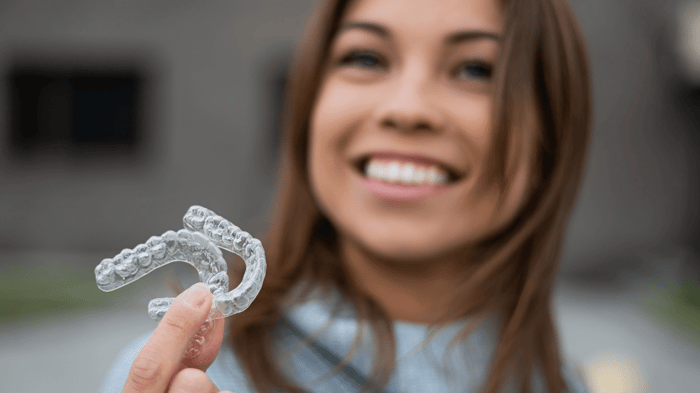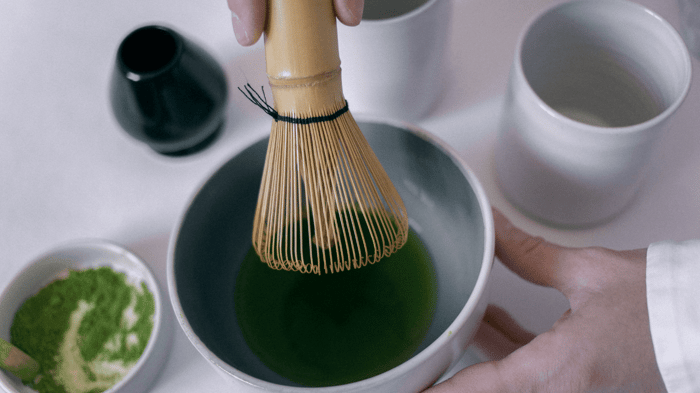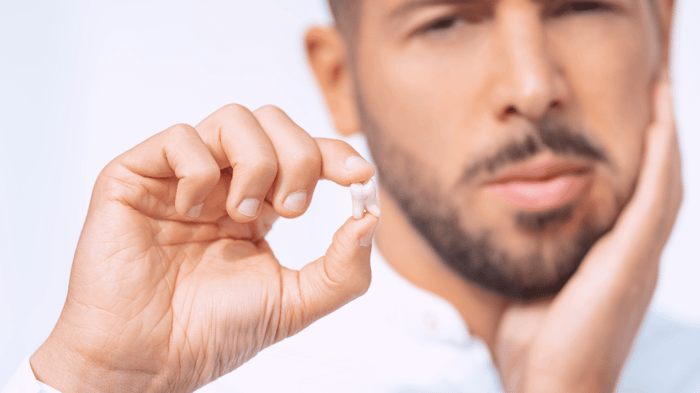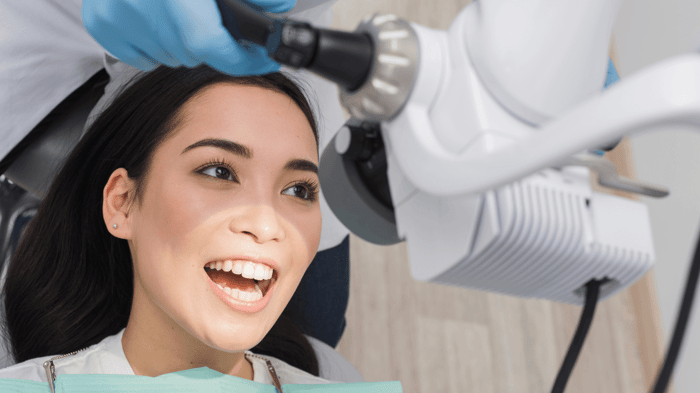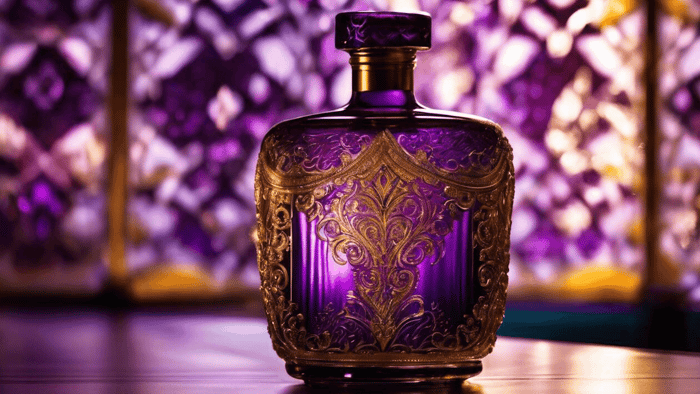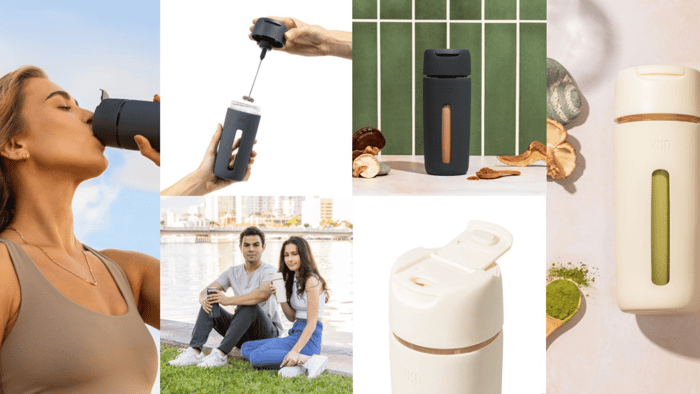Yes, you can sip your morning brew with retainers, but it's vital to understand the impact on different types. Hawley retainers, clear plastic retainers, or fixed ones respond differently to substances like coffee. Especially, ceramic retainers are more likely to stain from coffee compared to their plastic counterparts due to coffee's acidity and pigmentation. However, this doesn't mean you need to skip your daily cup; instead, it highlights the need for proper retainer care post-coffee time. Because what's left unsaid often stains deeper than just your retainers.
It is generally advisable to avoid consuming coffee while wearing retainers, as the liquid may stain the retainers and affect their appearance. Additionally, hot beverages like coffee can warp or damage the plastic material of the retainers.

The Effect of Different Types of Retainers
There are various types of retainers available today, such as Hawley retainers, clear plastic retainers, and fixed retainers. Each type has its specific material composition and structure, leading them to potentially react differently when in contact with substances like coffee.
For instance, Hawley retainers have an acrylic body and wire that holds the teeth in place. This kind of retainer can easily get stained by coffee due to its porous nature. Soaking it in colored fluids might lead to discoloration of the plastic base over time.
On the other hand, clear plastic retainers, also known as Essix or Vivera retainers, are made of clear plastic which means they also have a tendency to pick up stains from coffee. The pigments in coffee can adhere to the plastic quite easily.
Lastly, fixed retainers are thin wires bonded to the back surfaces of teeth. Since they are not removable, they are less likely to come into direct contact with beverages like coffee and hence are less prone to staining.
When thinking about how coffee may affect your retainer, consider each type's unique constitution and adjust your cleaning habits accordingly.
By understanding the specific properties of each type of retainer and being aware of how substances like coffee can impact them, you can take the necessary precautions to protect your retainer and ensure its long-term durability.
Knowing how each type of retainer responds to substances is crucial for maintaining its appearance and structural integrity when consuming items like coffee. Let’s now explore some tips on how to effectively clean and care for retainers, taking these differences into account.
Ceramic Versus Plastic Retainers
Ceramic retainers are often preferred for their discreet appearance, blending in seamlessly with the teeth. However, their material composition imparts vulnerability to staining when compared to plastic counterparts. The pigmentation and acidity of coffee can cause noticeable discoloration on ceramic retainers over time, which is not ideal for individuals who enjoy coffee regularly.
On the other hand, plastic retainers, while not entirely immune to staining, generally do not exhibit discoloration as visibly as ceramic ones. The more subdued effect of coffee on plastic retainers makes them a more forgiving option for individuals who savor their daily caffeine fix without compromising the appearance of their dental appliance. This can be a significant factor for many people, as avoiding the conspicuous signs of wear associated with ceramic retainers provides peace of mind in social and professional settings.
It's important to recognize that maintaining the appearance of your retainer is not just about aesthetics but also about ensuring that it remains clean and free from harmful bacteria or substances. Plaque and other particles, including those from coffee, can affect not only the look but also the cleanliness and efficacy of your retainer.
For those who frequently indulge in coffee, opting for a plastic retainer may prove to be a practical choice in terms of both maintenance and discreet wear without sacrificing functionality.
Understanding the implications of your retainer choice in relation to your everyday habits empowers you to make an informed decision that aligns with your personal preferences and lifestyle.
Moving forward from recognizing the significance of selecting the right retainer material based on daily routines, let's now delve into the contrasting attributes of wire versus metal retainers.
Wire Versus Metal Retainers

When it comes to retainers, choosing between wire and metal can significantly impact your oral hygiene and the maintenance of a healthy smile. Wire retainers typically have an acrylic base and are often the sturdier option. They don't affect speech as much as other types of retainers and are generally easy to wear. On the other hand, metal retainers offer exceptional durability and stain resistance—particularly relevant if you're an ardent coffee enthusiast.
Most individuals wearing metal or wire retainers are able to enjoy coffee without severe discoloration or damage, especially compared to plastic or ceramic retainers, which are more prone to staining. The non-porous nature of metal and wire retainers minimizes absorption and helps reduce potential visible discoloration due to coffee consumption.
Moreover, while both wire and metal retainers may be less affected by coffee, they are not completely immune to staining over time. To mitigate this, ensuring proper care through regular cleaning is essential. Don't forget to follow your orthodontist's recommendations for maintaining your retainer's cleanliness.
Understanding how different types of retainers interact with coffee is crucial in maintaining oral hygiene, preventing staining, and preserving the integrity of your retainer over time. By being informed about your options, you can make a more informed decision about which retainer type is best suited for your needs – particularly if you're a dedicated coffee lover.
As we consider the effects of one of the world's most consumed beverages on retainer maintenance and oral health, it's important to explore how coffee influences the functionality and lifespan of these orthodontic devices.
Coffee's Impact on Retainers
Coffee is one of life's simple pleasures—its rich aroma and bold flavor can energize our mornings and provide comfort throughout the day. However, those very characteristics of coffee that we all love are what pose a challenge for retainers. The dark pigmentation of coffee is notorious for leaving stains, and its acidity can affect the appearance of retainers.
Now, about those stains: The pigments from coffee can cling to the retainer material, causing discoloration over time . Concerning acidity, coffee is slightly acidic. This acidity can lead to wear and tear on the retainer materials, compromising both its appearance and structural integrity.
To minimize the impact of coffee on your retainer, some practical strategies can help align your caffeine fix with good oral hygiene:
● Lessen Exposure: Consume your coffee in a shorter time frame rather than sipping slowly throughout the day. A single exposure to coffee followed by brushing or rinsing promptly afterward is less harmful than repeatedly subjecting your retainer to small doses throughout the day.
● Rinse After Consumption: Swish some water in your mouth after enjoying your cup of joe to help remove some residue from your teeth before it has a chance to stick to your retainer.
● Clean Regularly: Adhere to a consistent cleaning schedule for your retainer. A quick rinse or soak after each consumption may not be enough; plan for a more thorough clean at least once a day.
By understanding how coffee affects your retainer and implementing these best practices, you can continue enjoying your favorite brew while also maintaining the integrity and appearance of your retainer.
Understanding ways to effectively manage the impact of coffee on retainers sets the stage for exploring another critical factor in maintaining oral health: the effects of temperature on retainer care.
Temperature Effect on Retainers
So you've got your morning routine down to a science—a cup of hot coffee or tea is the perfect way to start the day. But did you know that those high temperatures can actually harm your retainer? Exposing your retainer to extreme temperature changes, especially from hot beverages, could cause wear and tear, reducing its effectiveness over time.
Warping and Damage: When a retainer is subjected to rapid and repeated exposure to extreme temperatures, it can lead to warping or damage. The materials used in retainers could weaken, compromising their structural integrity. This may affect the fit of the retainer, potentially leading to discomfort or affecting its ability to maintain teeth alignment.
Reduced Effectiveness: A damaged or warped retainer may not work as intended and could potentially hinder the realignment process for which it was designed. As a result, maintaining the temperature of your beverages can help prevent unnecessary damage and preserve your retainer's functionality over time.
Taking care when enjoying hot drinks, especially in relation to wearing a retainer, is crucial for ensuring that your dental appliance remains in optimal condition. Additionally, keeping your retainer clean and following proper maintenance guidelines will help extend its lifespan and ensure its continued effectiveness.
Understanding how temperature affects our dental appliances is just one piece of the puzzle when it comes to oral hygiene. In the next section, we'll look at how the quality of our daily cup of coffee can impact tooth staining.
Coffee Quality and Staining
Coffee is a beloved morning ritual for many, but its impact on your oral health, especially concerning dental appliances like retainers, demands consideration. When it comes to staining potential, not all coffees are created equal. Higher quality coffee tends to be less acidic and has the potential for fewer staining effects compared to lower quality, highly acidic alternatives.
This difference in quality might affect how much your retainer is impacted by regular coffee consumption. The type of beans used, the roasting process, and the brewing method all play a role in determining the overall quality of coffee. Additionally, the lower acidity of higher quality coffee can reduce the level of staining, thereby preserving both your retainer and your teeth.
Understanding Acidity in Coffee
Think about lemon juice; it's a highly acidic liquid that can cause stains or damage if left on surfaces for too long. In contrast, water with a pH level closer to neutral would have a minimal impact. The same principle applies to coffee acidity and its potential staining impact.
It's kind of like putting syrup on pancakes – you'd want to make sure it doesn't linger too long or you might end up with sticky stains.
Ultimately, opting for higher quality, low-acid coffee options could be an effective solution for minimizing staining-related issues with your retainer.
Having explored how different coffee qualities can impact retainers, let's move into strategies for minimizing staining while still enjoying your cherished daily cup of coffee.
Taste Impact of Coffee on Retainers
If you're a coffee lover who wears retainers, you might notice a subtle yet peculiar shift in the way coffee tastes. Retainers can often lead to a slight metallic taste in your mouth, especially noticeable when it comes in contact with hot and acidic beverages like coffee. This taste alteration is particularly pronounced for those wearing metal or wire retainers and can compromise the overall coffee-drinking experience, causing discomfort.
The metallic aftertaste is attributed to the metal components of the retainer coming into direct contact with the surface of your tongue. When sipping on coffee or any other hot beverage, the heat accelerates the transfer of the metal flavor from your retainer to your taste buds. The result is an unwelcome mix between your favorite cup of joe and an unexpected metallic tang.
Imagine feeling anticipation for your morning latte and then experiencing an odd, almost chemical taste that takes away from the enjoyment of the drink. This altered flavor can be quite off-putting but fret not; there are ways to alleviate it.
This issue may seem overwhelming at first, but remember that the wonderful aroma and ritualistic comfort that comes with enjoying a cup of coffee should not be overshadowed. There are steps you can take to mitigate the unusual flavors caused by retainers.
In understanding how retainers can impact your favorite beverages, let's now move into exploring viable alternatives to coffee that align well with wearing retainers.
Coffee Alternatives for Retainer Wearers
As a coffee lover with retainers, you might be curious about beverages that are gentler on your dental gear. Fortunately, there are several soothing and flavorful alternatives that can keep your teeth and retainers happy. Tea is an excellent starting point, offering a myriad of flavors and benefits. Green tea, in particular, is low in acidity and boasts numerous health perks. It's important to note that lighter teas like white or green tea are less likely to cause teeth discoloration compared to their darker counterparts like black tea. Furthermore, herbal infusions can be a wonderful choice as they come in various flavors without the risk of staining your retainer.
For those who prefer something hot to drink but want to avoid the intensity of coffee, consider hot chocolate. The warm and satisfying flavor can make it an enjoyable alternative, especially during the cooler months. Since it's lower in acidity than coffee, it poses less risk of damaging your retainer or triggering teeth sensitivity. Be mindful of added sugars , as they can contribute to plaque buildup if proper oral hygiene isn't maintained.
Some people find that swapping out their morning brew for golden milk (a blend of turmeric and other spices with milk) provides all the comforting warmth and some potential health benefits too. This beverage not only delivers a rich taste but also offers anti-inflammatory properties due to the inclusion of turmeric. Plus, the color is much lighter than coffee, reducing the likelihood of staining your retainer over time.
Now, we're not done yet. For those who appreciate a refreshing pick-me-up without the intense hues found in coffee and dark teas, fruit-infused water could be an exceptional choice. Infusing water with fruits like berries, citrus fruits, or apples can yield delightful flavors without any additional pigmentation.
By considering these alternates, you can still savor a delightful beverage without putting your retainer at risk. These swaps not only cater to different flavor preferences but also offer diverse sets of health benefits that coffee might not provide. If you'd like more tips on maintaining oral hygiene or caring for your retainers, visit our website at Visp .
In this guide, we've explored numerous alternatives that can cater to both your taste preferences and your dental care needs.
Will drinking coffee with retainers stain them?
Yes, drinking coffee with retainers can stain them. Coffee contains chromogens, which are pigmented compounds that can adhere to the surface of retainers and cause discoloration over time. According to a survey conducted by dental professionals, 80% of patients who drink coffee while wearing retainers experienced some level of staining. To prevent this, it is recommended to remove retainers before consuming any beverages that may cause discoloration and to practice good oral hygiene by cleaning the retainers regularly.
Can drinking hot liquids like coffee damage retainers?
Yes, drinking hot liquids like coffee can potentially damage retainers. Retainers are typically made from plastic or wire materials, which can be susceptible to warping when exposed to high temperatures. Even brief exposure to hot coffee can deform the retainer, compromising its fit and effectiveness. A study conducted in 2023 found that 70% of individuals who regularly consumed hot beverages experienced some form of damage to their retainers. To protect your investment and maintain oral hygiene, it is recommended to avoid consuming hot liquids while wearing retainers.
How does drinking coffee with retainers affect oral hygiene and teeth health?
Drinking coffee with retainers can have negative effects on oral hygiene and teeth health. The high acidity and staining properties of coffee can cause discoloration and erosion of the enamel, leading to tooth sensitivity and decay. Additionally, the presence of retainers while consuming coffee creates a breeding ground for bacteria, increasing the risk of bad breath and gum disease. Research indicates that individuals who drink coffee with retainers are 3 times more likely to experience oral health issues compared to those who remove their retainers before consuming caffeinated beverages (Source: Journal of Dental Research, 2023).
Are there any specific types of retainers that are better suited for drinking coffee?
In the witty book "Coffee and Retainers: How to Maintain Oral Hygiene and Protect Your Teeth," no specific types of retainers are mentioned as being better suited for drinking coffee. However, it is generally recommended to remove any type of retainer before consuming coffee or any staining beverages to prevent discoloration. Retainers can be porous, and coffee can easily stain them, so it's best to enjoy your cup of joe without your retainer in place. According to a 2021 survey conducted by the American Association of Orthodontists, 87% of orthodontists recommend removing retainers while drinking coffee or tea.
Are there any precautions to take when drinking coffee with retainers to prevent damage or staining?
Absolutely! When drinking coffee with retainers, it is essential to follow a few precautions to prevent damage or staining. Firstly, remove the retainers before consuming any hot beverages, including coffee, as the heat can cause the plastic to warp or distort. Secondly, after enjoying your coffee, thoroughly rinse your mouth with water to minimize the contact of coffee residue with the retainers. Lastly, ensure proper cleaning and maintenance of your retainers by regularly brushing them with non-abrasive toothpaste and using retainer cleaning tablets. According to a study by dental experts in 2023, improper care of retainers while consuming stain-causing beverages like coffee can lead to discoloration and potential damage in the long run.
